We build impact measurement into routine work
We work with practitioners and investors to help you to select a range of tools and frameworks from different sectors (social enterprise, inclusive business, microfinance, impact investing, international development). We aim to build information systems with the appropriate level of complexity and cost that will give managers, boards, investors, clients and other stakeholders the information that they need, when they need it. Our starting point is existing data, organisational processes and client touch-points, thereby minimising cost and demands on staff time.
Developing monitoring systems for refugee support organisation
A UK foundation funded a theory of change workshop and follow up process to clarify the organisation’s methodology and set up an internal monitoring systems to be able to measure and manage both outputs and outcomes.
The process started with a discussion of who the organisation was seeking to serve and who it inadvertently excluded. The organisation served around 50 young refugees from across London, and it was clear that it had become something of a club for a small group of people.
After review the organisation became much clearer about targeting people with leadership potential, adopting an approach that was more welcoming to new clients. By clarifying its focus on leadership development, the organisation was able to identify which of its activities were designed to contribute to this goal, and refocused and refined its work.
Leading on from this process it was then relatively straightforward to develop output and outcome indicators. These were embedded into internal processes to track the engagement and progress of clients. We also designed a periodic participatory review and evaluation process involving staff, clients as well as getting feedback from clients who had left.
Tracking poverty outreach and progress
The Microloan Foundation (MLF) sought to track and manage the effectiveness of its poverty outreach and movement of its clients out of poverty over time for its Malawi and Zambia operations.
We helped them to select the Progress out of Poverty Index as the appropriate tool for this. Over a one year period the tool was integrated into operations, with robust testing of data collection, quality control, data capture and processing and data analysis process. As part of this staff incentives were introduced that provided cash incentives for high quality data collection, judged by random verification of data.
At the same time data was used to benchmark the poverty outreach of MLF clients against national poverty data, comparing operations in different districts of the country, and through this to set performance targets for the organisation.


